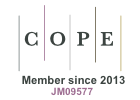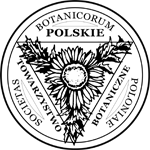Abstract
The experiment was carried out in the years 2006-2008 in Bałcyny (N=53°35'49"; E=19°51'20"). The aim of this study was to determine the effect of sulfur fertilization on the sanitary state of spring oilseed rape, winter oilseed rape, white mustard and Chinese mustard as well as on the species composition of fungi colonizing their seeds. Sulfur fertilization had a beneficial effect on the health of Brassicaceae plants infested by Alternaria blight, grey mould, Sclerotinia stem rot, Phoma stem canker and Verticillium wilt, but it had a varying effect on the occurrence of powdery mildew. Alternaria alternata and Penicillium spp. were isolated most frequently from Brassicaceae seeds. In general, more fungi (including pathogenic to Brassicaceae) were isolated from the seeds of plants grown in non-sulfur fertilized plots. Pathogens occurred primarily on the seed surface, and their number decreased after surface disinfection of seeds.
Keywords
spring oilseed rape; winter oilseed rape; white mustard; Chinese mustard, sulfur fertilization; diseases; fungi colonizing seeds






